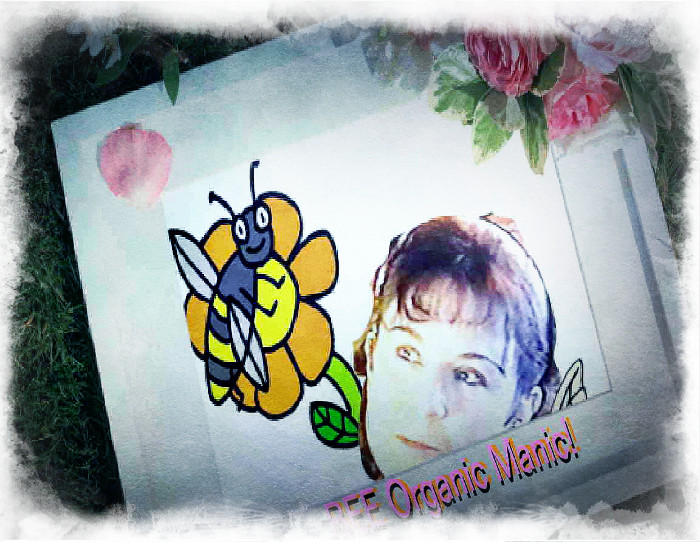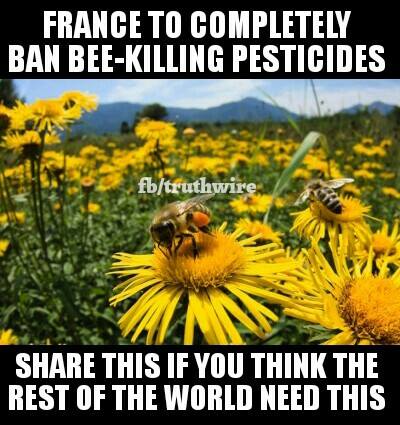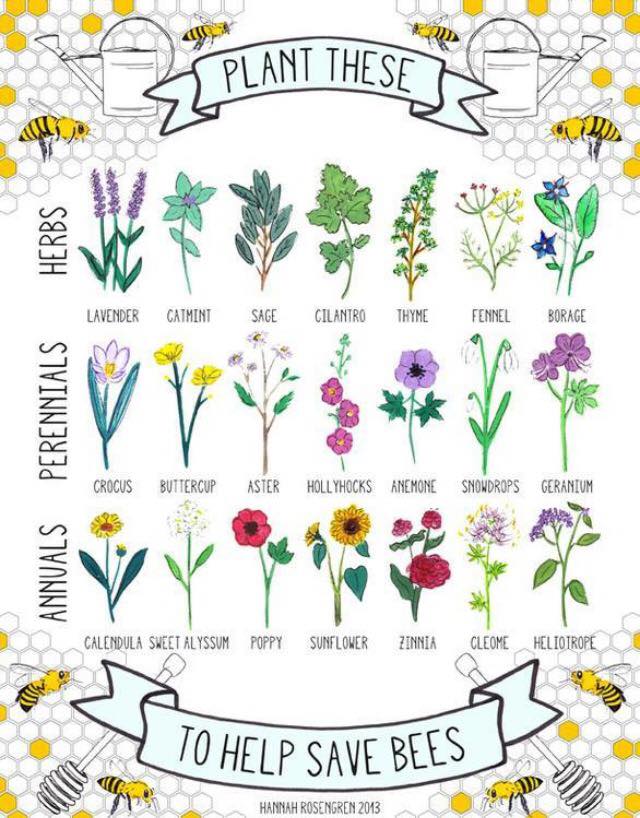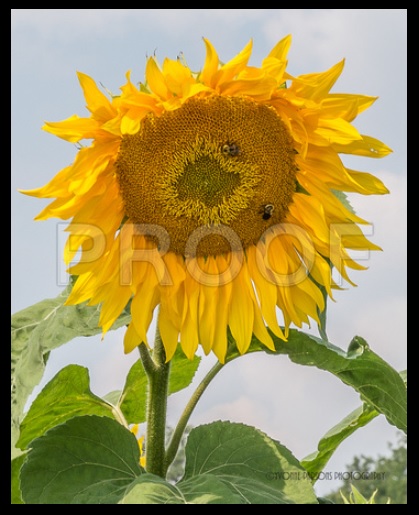
Let’s let the dandelions and daisies grow! Let’s plant more wild-flowers and floral gardens for cross-pollinating. Let’s make sure the pesticides get BANNED everywhere!
This is a very good article from Jessica Tucker’s on ONE GREEN PLANET
http://www.onegreenplanet.org/
*******************************************************
Bees are some of the hardest working creatures on the planet, and because of their laborious work ethic, we owe many thanks to this amazing yet often under appreciated insect.
Our lives – and the world as a whole – would be a much different place if bees didn’t exist. To illustrate this fact, consider these numbers: bees are responsible for pollinating about one-sixth of the flowering plant species worldwide and approximately 400 different agricultural types of plant.
Honeybees and the other pollinators and the invaluable pollinating services they provide us with helped produce approximately $19 billion worth of agricultural crops in the U.S. alone in 2010; that’s estimated to be one-third of everything we eat! The other animal pollinators such as bats, moths, butterflies, hummingbirds, ants, and beetles contributed to an estimated $10 billion in 2010! To say we rely on the pollination efforts of bees (and other animals) to sustain our modern food system is an understatement.
Let’s take a look at the amazing world of bees and acknowledge all they do for us:
Pollination – How it Works & Why it’s Important
What is pollination? Simply put, it is the transfer of pollen from the male part of the flower, the anther, to the stigma, which is the female part of the flower. Upon the two’s meeting, a plant’s seed, nut, or fruit is then formed.
Some plants rely on animals to assist with their pollination process, while others can pollinate themselves or rely on the wind to do it for them.
Bees also tend to focus their energies on one species of plant at a time. By visiting the same flowers of a particular species in one outing, much higher quality pollination occurs – rather than spreading many different pollens to different plants which are not being pollinated, all plants of one species are getting an even distribution of vital pollen from others of its same species.
Pollination is essentially plant reproduction. Without help from animal pollinators, our everyday food supply would look much different – at least one third of our staples we’ve come to rely on would no longer be available.
Bees Provide Sources of Food
A few examples of the foods that would no longer be available to us if bees ceased pollinating our agricultural goods are: broccoli, asparagus, cantaloupes, cucumbers, pumpkins, blueberries, watermelons, almonds, apples, cranberries, and cherries.
Honey is a food product created by bees and is not to be forgotten. Made by bees regurgitating nectar and passing it back and forth in their mouths to one another before depositing and sealing it in a honeycomb, its intended use is for the bees’ winter food stores. Humans are quite fond of this amber liquid as well – the 2013 honey crop was valued at $317.1 million.
Bees Beautify the Planet
Pollinating flowers and contributing to the beautification of the planet’s floral landscapes may be the bees’ perhaps simplest and least economically important actions, but it’s certainly its most aesthetically pleasing one.
By keeping flowers pollinated, bees perpetuate floral growth and provide attractive habitats for other animals such as insects and birds.
Bees are easily amongst the most important insects to humans on Earth. These humble, buzzing bugs deserve a huge thanks – for helping provide us with our favorite fruits and vegetables, their delicious honey, and beautiful, flowery gardens!

This is a great chart from my friend Anne Schultz, who lives on a farm AND works in a flower shop.

Lastly, as she is presently the featured artist on my Artist in the Attic section of eco-friendly artisans, I’ve included a lovely bee/sunflower photo of Yvonne Parsons

